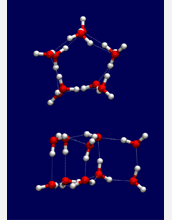
Welcome! Click on a tab below to find books, articles, and websites for use in this course.
You'll need a College of DuPage Library card in order to use most of the resources below from off campus. If your card is not working, it may need to be reactivated.
Questions? Feel free to use my contact info to the right, stop by the Reference Desk, or contact us by email or chat.
Pick a Topic
One of the best ways to get started is to take a look at your textbook. What ideas have caught your attention? What questions do you have from class discussions?
Google News also provides good current news on a variety of topics.
If you have any questions about definitions from your textbook, or the context of some of these issues (such as "how long have we been using nuclear energy in the US?"), head to a reference source to discover more information. Gale Virtual Reference Library and CQ Researcher are both good sources of information.
Finally, you can browse through current chemistry magazines and journals in order to see current headlines. For example, take a look at
- Chemical and Engineering News
- Science News
- American Scientist
Find Books
Our library catalog contains our books, our DVDs and other physical items. Search by topic, such as "drinking water" and pay attention to the ways to limit your search on the left side of the screen.
Find Articles
Next, head to a database:
Once you have a concrete question, head to a library database in order to find scholarly articles. The best bets for your topic are:
Academic Search Complete: ASC offers a wide variety of topics with a wide variety of types of sources (newspapers, magazines, scholarly articles.) It's a good place to look for anything with a current focus (such as Fukushima Daiichi), but be sure to know what you're looking at.
Science Direct: SD contains only scientific scholarly articles. Be sure to select "Subscribed Journals" while searching, and use Gale as necessary in order to get more information about any topics you may have questions about.
You're also welcome to explore our other science databases for more information.
Evaluating Websites
While you're doing Google searches to either narrow your topic or in order to dig up more information on certain subject, you want to be careful to decide if the information you find is trustworthy.
When it comes to science, nearly everyone has opinions: are we getting enough Vitamin D? What will fracking do for our economy or our groundwater supply? Your job is to evaluate the information you can find through Google to find the good websites--those written by authors you can trust, with good and up-to-date information.
Authorship: Who created this website? What is their background on the topic? Are they trustworthy?
Bias: Why was the website created? What point of view does the author have? Does that limit the facts they present or how the facts are presented?
Date: How old is the information that is presented? Is it still accurate?
Questions? Check out the COD Library's guide to evaluating information.
Class Exercise
Take a moment to look at your website. Is this information trustworthy? How do you know? Be prepared to tell your classmates your opinion.
Cite Sources
Find directions about how to cite your sources on the library citation guide.
You can also always check out the Purdue OWL website, which has MLA and APA citation guides.
Finally, you are welcome to use NoodleBib if you'd like to use a program to create and organize your citations. You must "Create a New Folder" when you use NoodleBIB for the first time. Click on "I am citing a(n):," choose the type of item you are citing, and then fill in the online form. Your bibliography will be formatted for you.
Plagiarize, Patchwrite, Paraphrase?
Confused about when you would need to cite, or where the line is drawn between paraphrasing and patchwriting?
Take a moment to look at the following sources to see definitions and good and bad examples of student writing. Further questions? Contact me using the information at the right of the screen.
- The COD Plagiarism Tutorial has samples, quiz questions to test your knowledge, and helpful explanations.
- Take a look at the COD patchwriting definition at the bottom of the page.
- See a longer definition of patchwriting supplied by Lewis and Clark College.
- See a discussion of patchwriting that occurred when a student writer used the New York Times as a plaigiarized/patchwritten source..